The Best Non-Toxic Dish Soaps for Every Budget
One of the important steps to take in creating a healthy kitchen environment is switching to a safe & natural dish soap! Not only do you want to avoid leaving potential residues of toxic ingredients on your dishes, but they can also be harmful to your hands, harmful to breathe in, and harmful to the environment.
This page contains some affiliate links, which means I may receive a small commission, at no extra cost to you, if you purchase through these links. I only recommend products that I LOVE and personally use. Read more here.
When it becomes overwhelming to decide what items to switch and when, starting with the products that you use the most is always a good idea. Dish soap is one of those items!
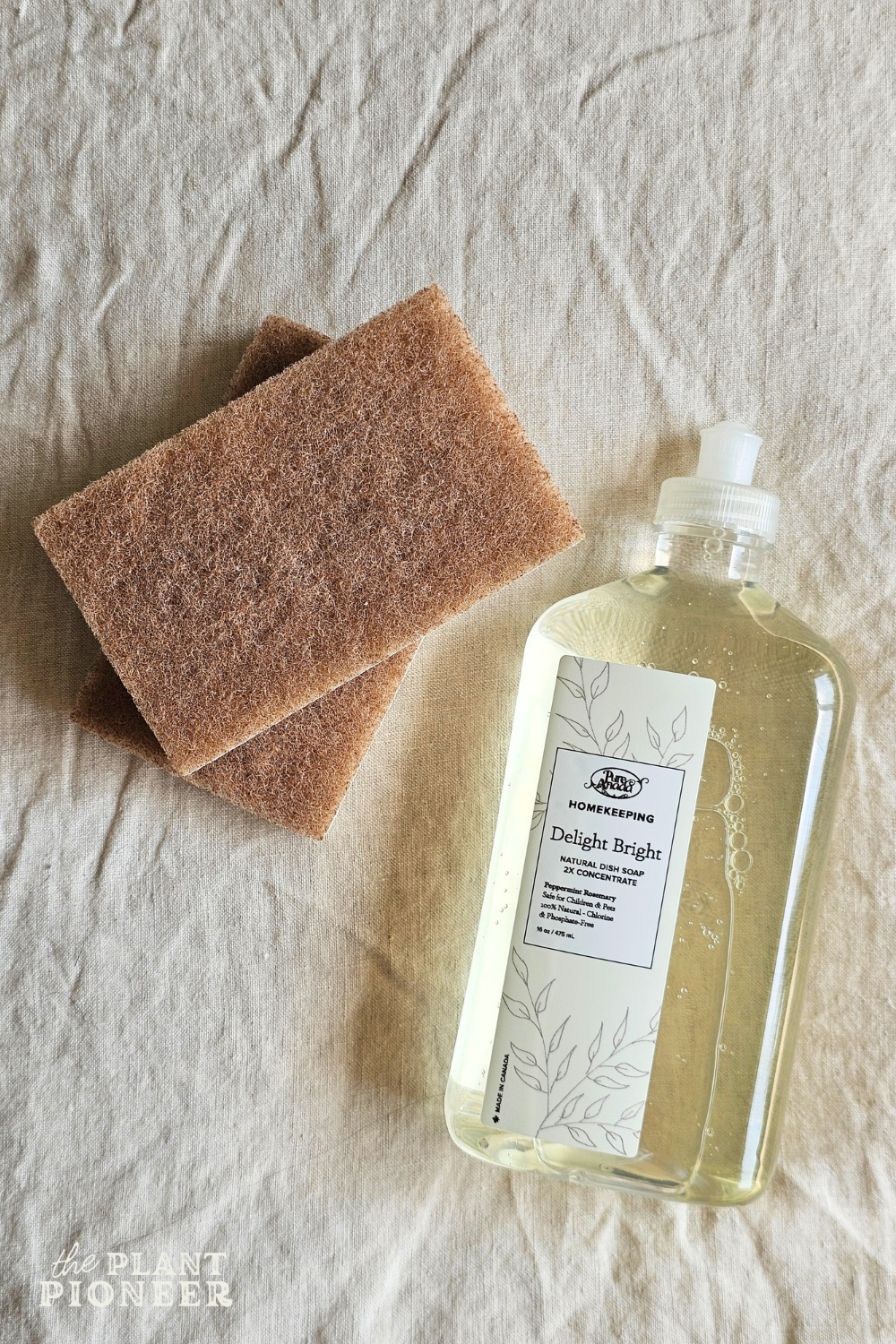
It’s surprising how many ingredients known to be skin-irritants are commonly found in many brands of dish soap, and I would say this is one of the most difficult product categories to find non-toxic options in. In a perfect world, we would avoid all potentially harmful ingredients, but it may not always be possible depending on your budget, product availability, and the fact that hard water can reduce the effectiveness of natural soaps.
Some of the toxic ingredients of higher concern that are included in many brands of dish soap include:
- Artificial colours and fragrances: contain endocrine-disrupting compounds (like phthalates) and can be carcinogenic. Adding synthetic colourants is completely unnecessary, and is harmful to the environment as well. The term ‘fragrance’ is used to hide unknown chemical combinations that companies don’t have to disclose because it’s “proprietary information”, so don’t be fooled when a product is marketed as “phthalate-free”… this doesn’t mean it’s non-toxic.
- Synthetic preservatives like methylisothiazolinone, benzisothiazolinone, and methylchloroisothiazinolinone: are skin sensitizers & irritants, are toxic to aquatic life, and can cause contact dermatitis.
- Parabens: well-known as endocrine disruptors and are concerning for reproductive toxicity.
- Ethanolamine compounds like monoethanolamine, diethanolamine, triethanolamine (MEA, DEA and TEA): can cause cancer, skin irritation, eye irritation, respiratory irritation, and toxicity to aquatic life.
- Alcohol ethoxylates and sodium laureth sulfate: can be contaminated with 1,4-dioxane and ethylene oxide, which are carcinogenic.
The following common ingredients are also concerning, but to a lesser extent:
- Cocoamidopropyl betaine: is a surfactant, and is actually synthetic even though it’s often referred to as natural because it is made partly from coconut. It can cause irritation and allergic contact dermatitis, and it is unclear if irritation is being caused from the ingredient itself or from impurities that could be present in it, such as dimethylaminopropylamine and nitrosamines. This is a very common ingredient and is generally considered to be mild, but is suspected to be an environmental toxin.
- Sodium benzoate: is a preservative that is generally considered to be of low concern, however it can cause allergic skin reactions and irritation. Most of the concern for this ingredient is in regards to its’ use in food. (In food, it should be avoided when present in combination with ascorbic acid, citric acid, or vitamin C, as these can lead to the formation of benzene, which is carcinogenic. Elevated temperatures or direct sunlight is needed for that chemical reaction to occur. It has also been linked to reduced fertility and ADHD in children.) I typically avoid it whenever possible.
- Cocamine oxide and sodium coco sulfate: synthetic surfactants that are considered to be of low concern in cleaning products, but can be skin irritants and toxic to aquatic life.
- Cocamidopropylamine oxide: is a synthetic surfactant that can cause allergic skin reactions and eye damage, but is also considered a low concern for cleaning products. It is made partially from dimethylaminopropylamine, which is a known skin irritant and can be present in cocamidopropylamine oxide.
- Lauramine oxide: shows acute toxicity to aquatic life, can cause skin irritation, and is a probable human carcinogen.
- Phenoxyethanol: is a preservative that is considered to be low concern, but it can cause allergic reactions and skin irritation.
The price ranges for natural dish soap can vary quite a bit, so I decided to break them down into three categories: the most budget-friendly options, a little more expensive, and then the most expensive options. I hope this makes it easier to find the most suitable option for you!
A lot of the time, the higher priced options have the cleanest (no pun intended ;)) formulas with the least amount of concerning ingredients. But I know that not everyone can, or wants to, spend $10+ on a bottle of dish soap! If a dish soap had more than four ingredients of concern, I did not include it in this list.
Prices shown are in CAD dollars. While prices may change with time, this will give you a good reference point.
$ The Most Budget-Friendly
Eco-Max
$4- 6 for 740 mL
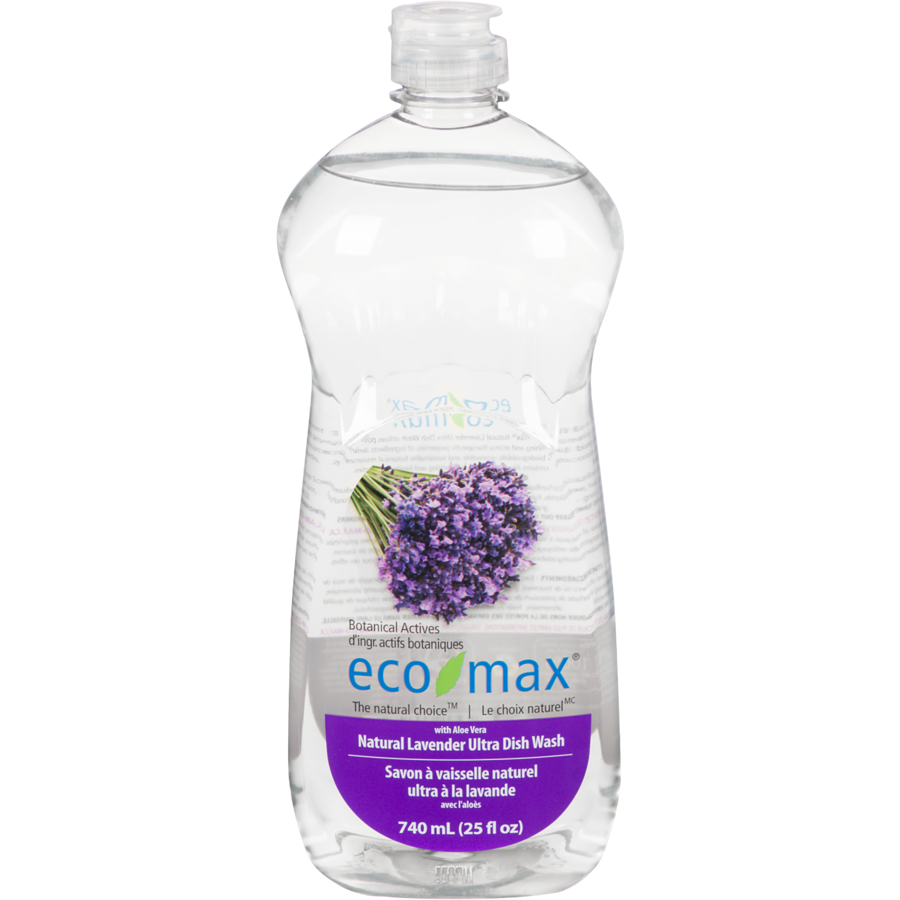
This brand is easy to find and is available at most grocery stores. The formula is pretty simple and is free from the most toxic ingredients, although it does contain sodium laureth sulfate, which is pretty bad. There are a few scent options (and scented with only essential oils of course). They also have refill jugs available to buy for refills, making it even more economical.
Eco-Max Baby Dish Wash
$4- 6 for 740 mL
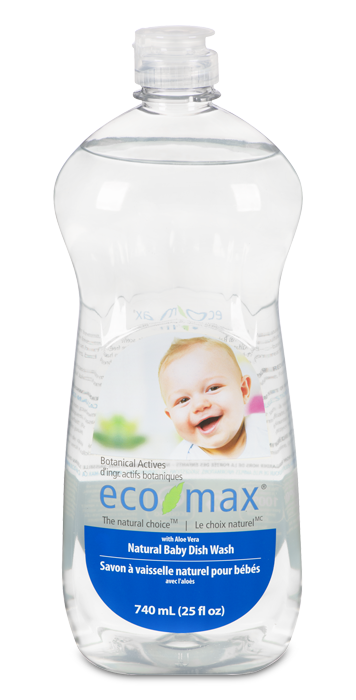
For a better, more natural option in the Eco-Max line, you can use their Hypoallergenic Baby Wash version of their dish soap. It is a much gentler formula, and only has one ingredient of concern, which is sodium benzoate. Because this one does not have some of the surfactants that their regular dish soap has, it most likely doesn’t get as bubbly.
Nature Clean
$4- 6 for 740 mL
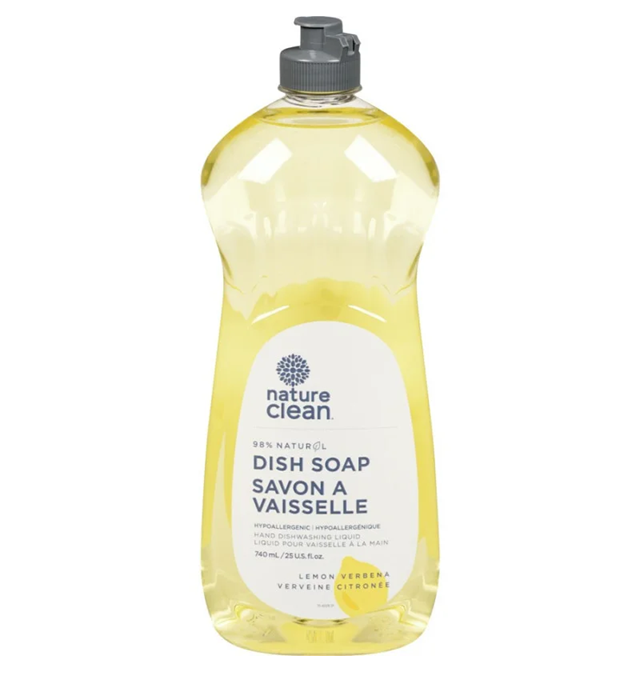
This one is also easy to find in many stores and is similar to Eco-Max, with a couple differences in the formula. I would say that this one is slightly better than Eco-Max (their regular line) in terms of ingredients. Make sure to choose the scent options that have only essential oils listed in the ingredients (or the fragrance-free).
$$ A Little More Expensive
Attitude Home Essentials
$12- 13 for 473 mL
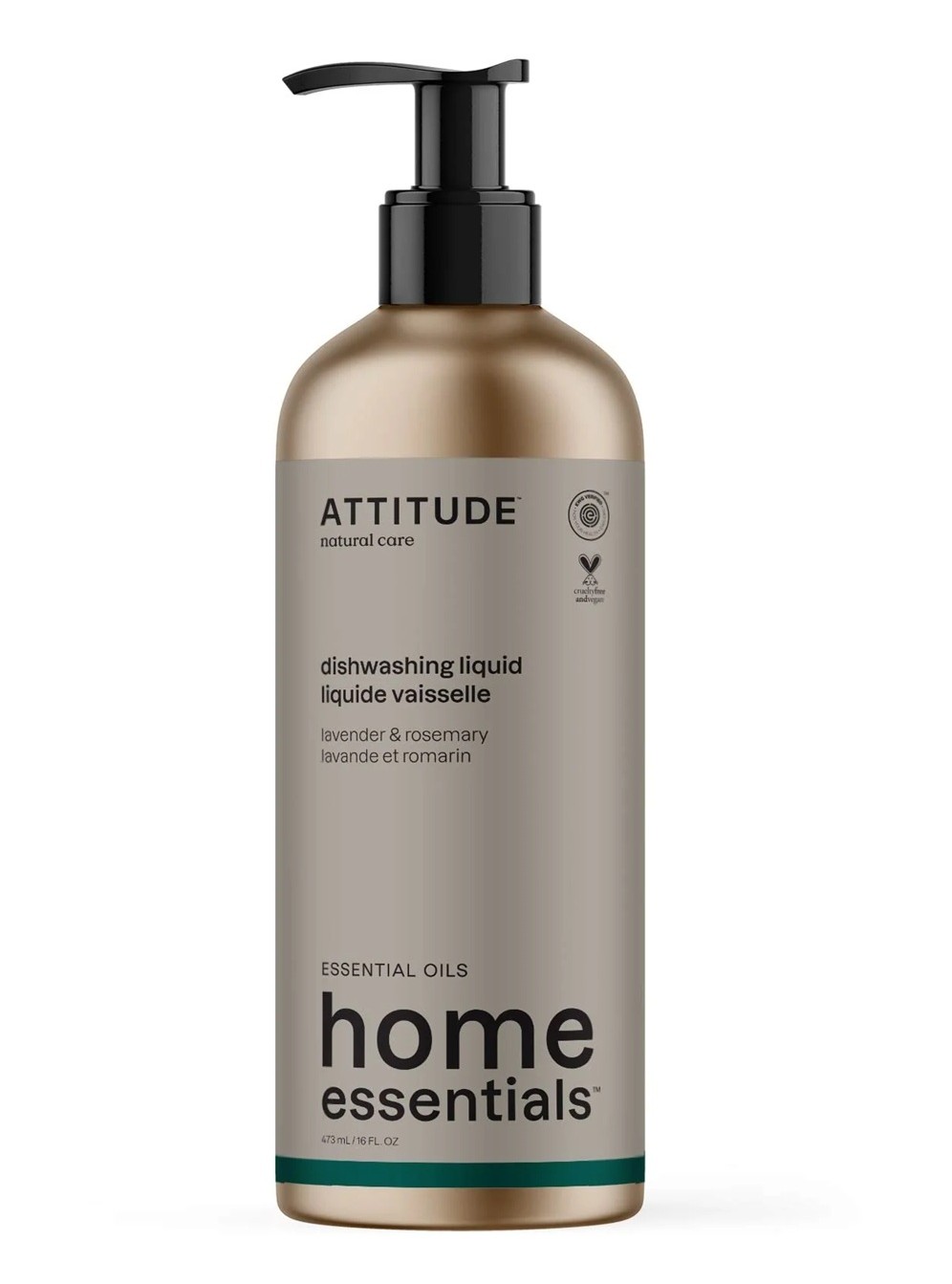
While this one does contain a couple of concerning ingredients, it is EWG verified! This means that the EWG has ensured the company uses good manufacturing processes, has provided full transparency of the ingredients, and that it does not contain any ingredients that are considered “unacceptable”.
I only recommend the “Home Essentials” line from this company (other than the unscented one below), because the Home Essentials line uses only essential oils for the scent and they are transparent about that in the ingredient list.
Attitude Baby Dish Soap (Unscented)
$9 for 1000 mL (1 L)
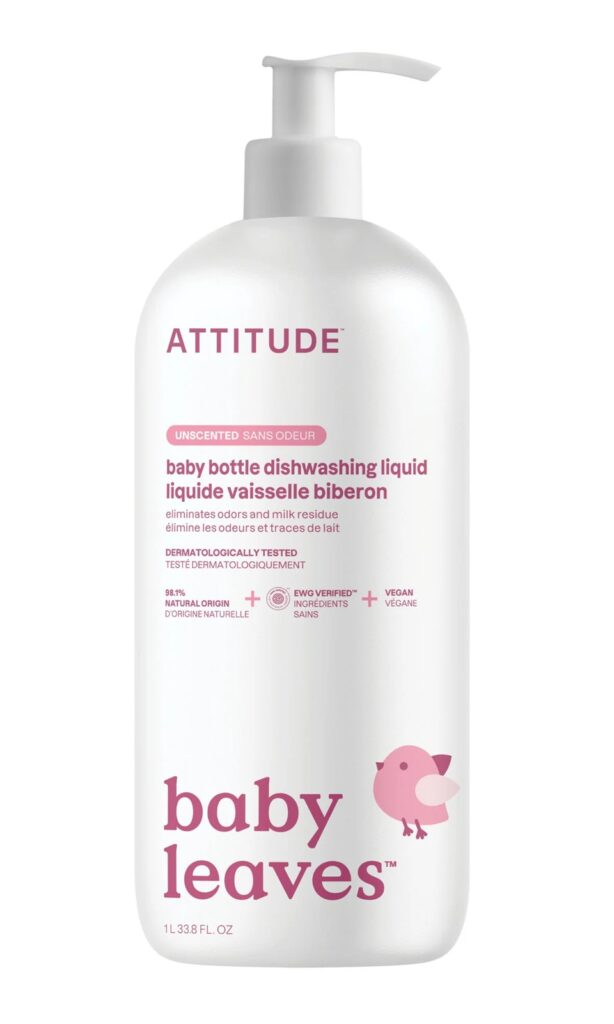
Go ahead and use this for all of your dishes, not just for baby! This one is also EWG verified, which is great! However, make sure you only get the unscented one. They have synthetic fragrance compounds in some of their scents, despite marketing that makes it sounds like everything is natural.
Lemon Aide
$10- 12 for 1000 mL (1 L)
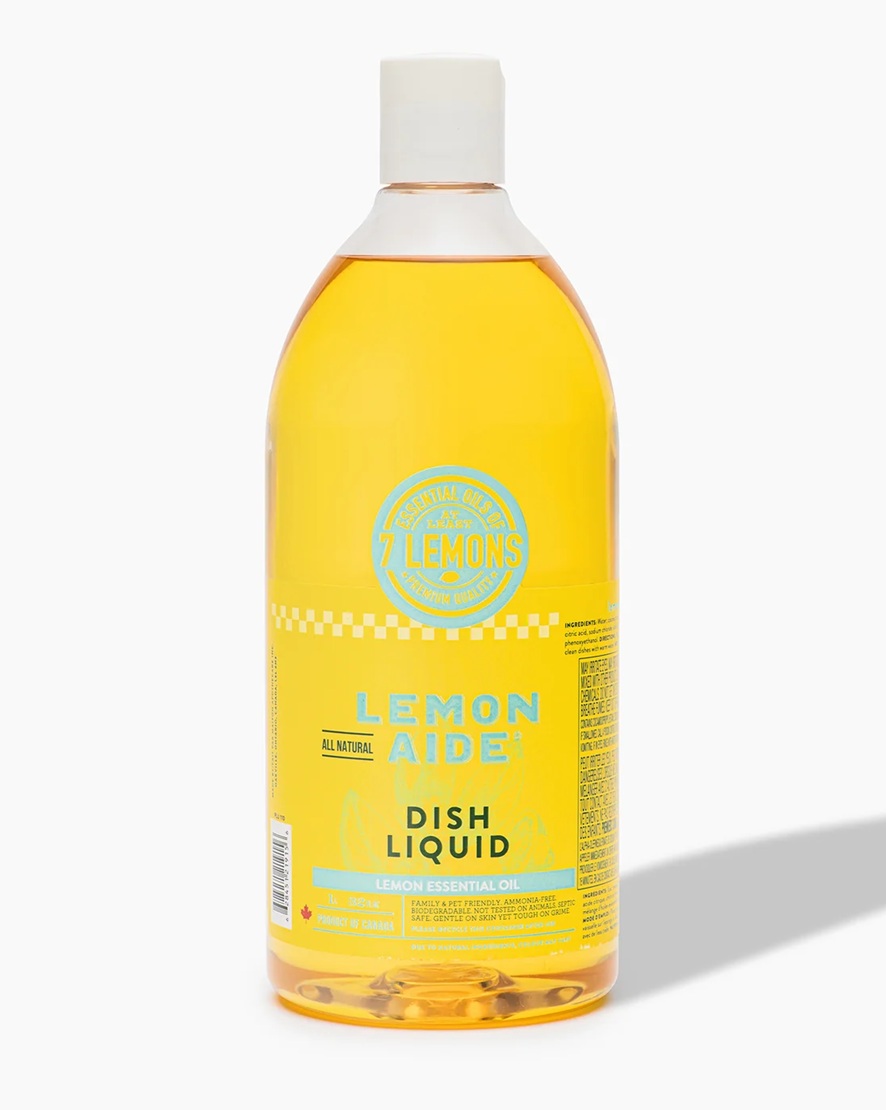
I love this brand’s cute packaging and branding, which just makes it more enjoyable to use the products! It is also available in several grocery stores now, and I sometimes see it at Winners at a discounted price. It has a fairly simple formula, without any of the most concerning ingredients. They have a couple of scent options that are made only with essential oils.
Aspen Clean
$10- 12 for 530 mL
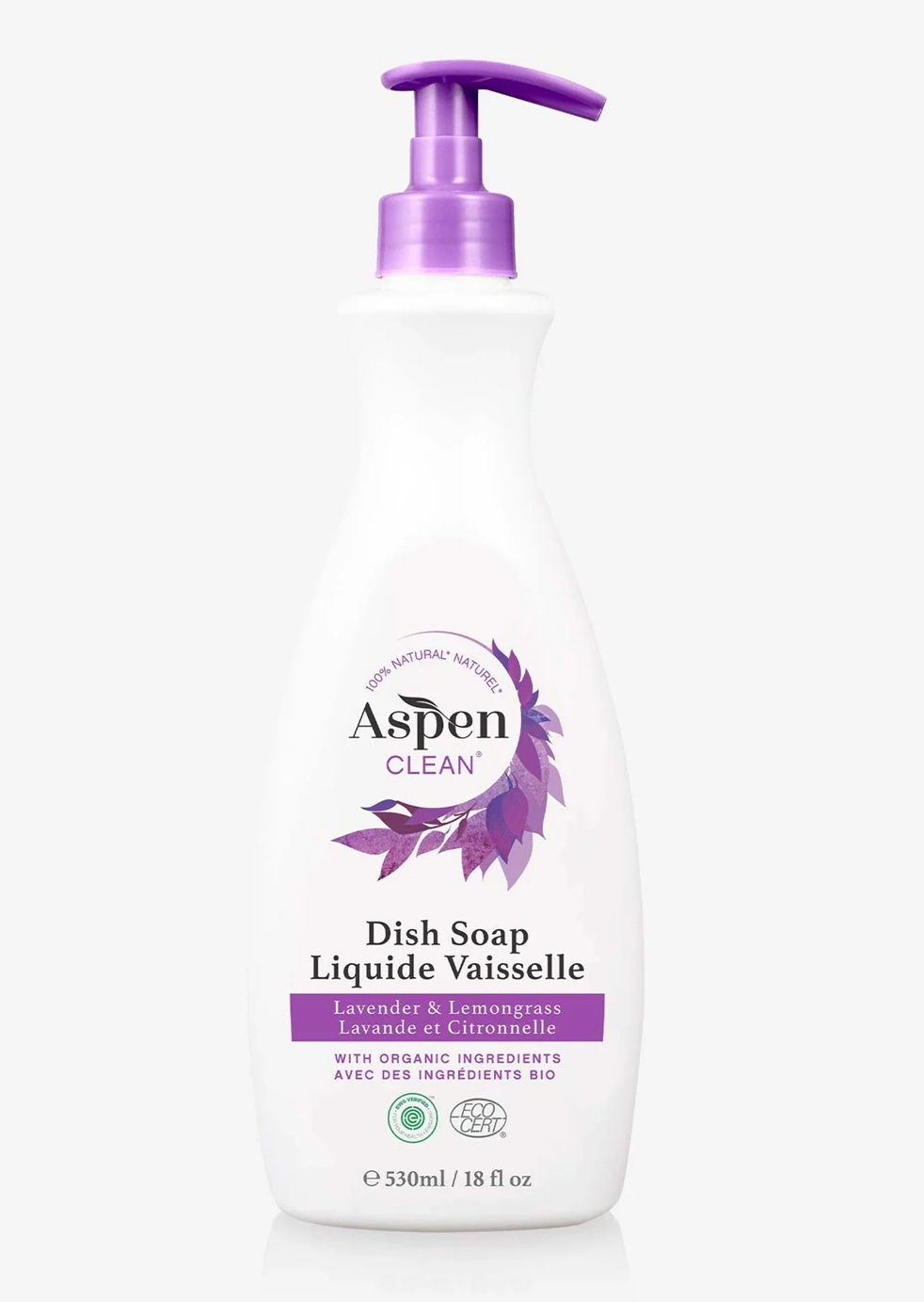
Simple, natural, and EWG verified! This one is truly natural and safe. It does not have any ingredients of concern, and is one of my top picks if using the safest formula is your priority. They also have large refill jugs available for more savings.
Make Your Own With Castile Soap or Sal Suds
$15- 30 for 990 mL (varies depending on the brand you use)
It just wouldn’t be right not to mention that you can use just plain castile soap for washing dishes. This is one of the most natural and most budget-friendly dish soap options as castile soap is very concentrated.
Another option is to use Sal Suds, which is a more potent degreaser than castile soap, but it is less natural. It contains synthetic surfactants, but it is safer than some of the other dish soaps on this list. A lot of DIY dish soap recipes will use Sal Suds.
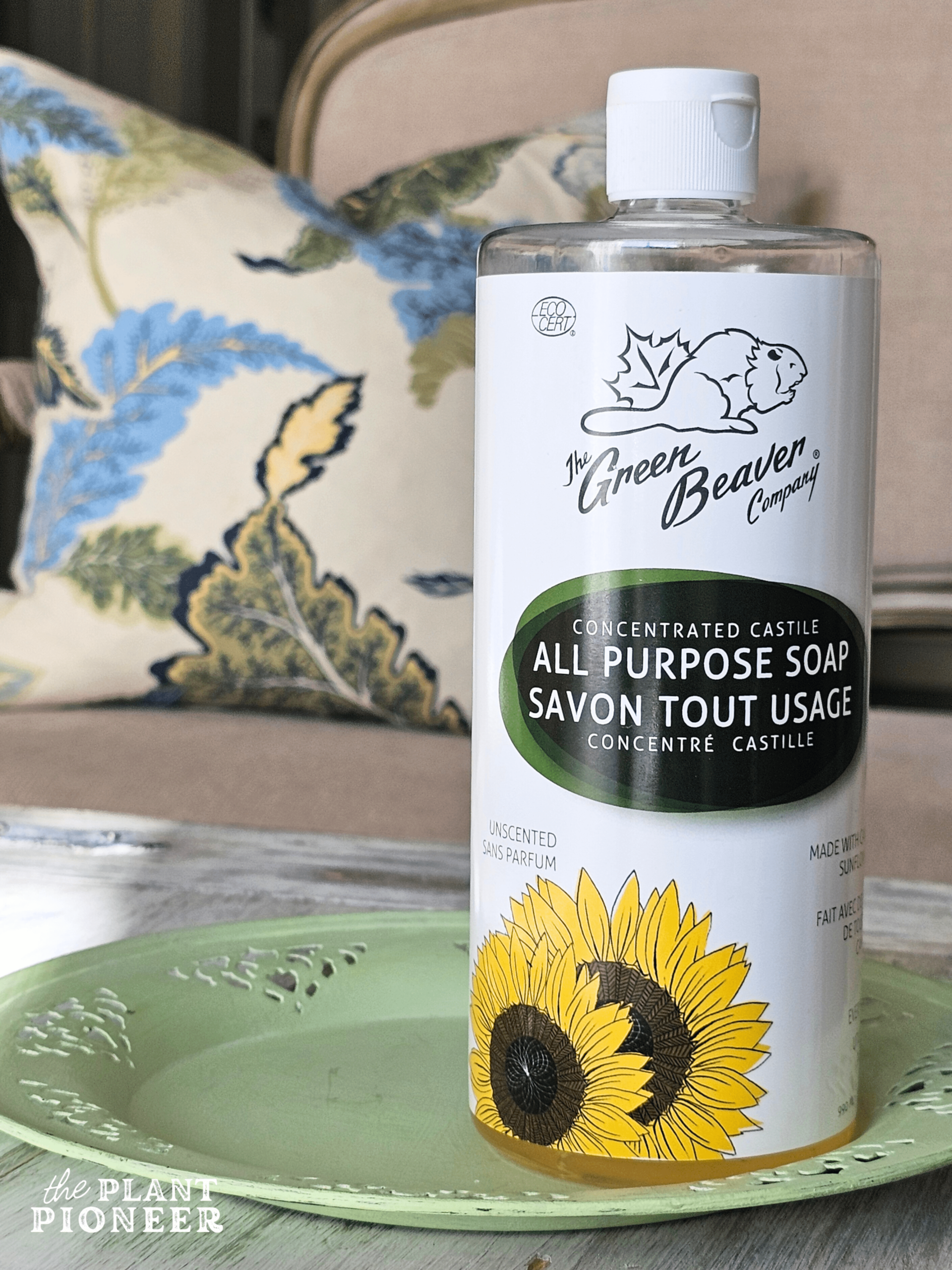
If cleaning just one dish, you can place one small squirt on the dish and scrub it around… it will be nice and sudsy. Or, for a more economical option, you can use one pump from a foaming soap dispenser. In a foaming soap dispenser, you use a 1:3 ratio of castile soap to water. You can clean a dish with a couple pumps from your foaming soap dispenser. Here’s my recipe explaining more details on how to make foaming soap with castile soap.
To clean a sink full of dishes, add a couple of tablespoons of castile soap to running, hot water. If you find there aren’t enough suds, adding a little bit of soap directly to your sponge can help. You can add essential oils to your soap to change the scent, add antibacterial properties, and add additional de-greasing properties (lemon and orange are great for that). Lemon, orange, tea tree, lavender, lemongrass, and basil are all great for dish soap!
Some people find there aren’t as many suds as they would prefer with using castile soap (mainly because it doesn’t contain any of the chemicals that create foaming action), so keep that in mind! You may find that Sal Suds will work better for you in this case, and it is more suited for hard water.
Pure Anada (Delight Bright)
$10 for 475 mL
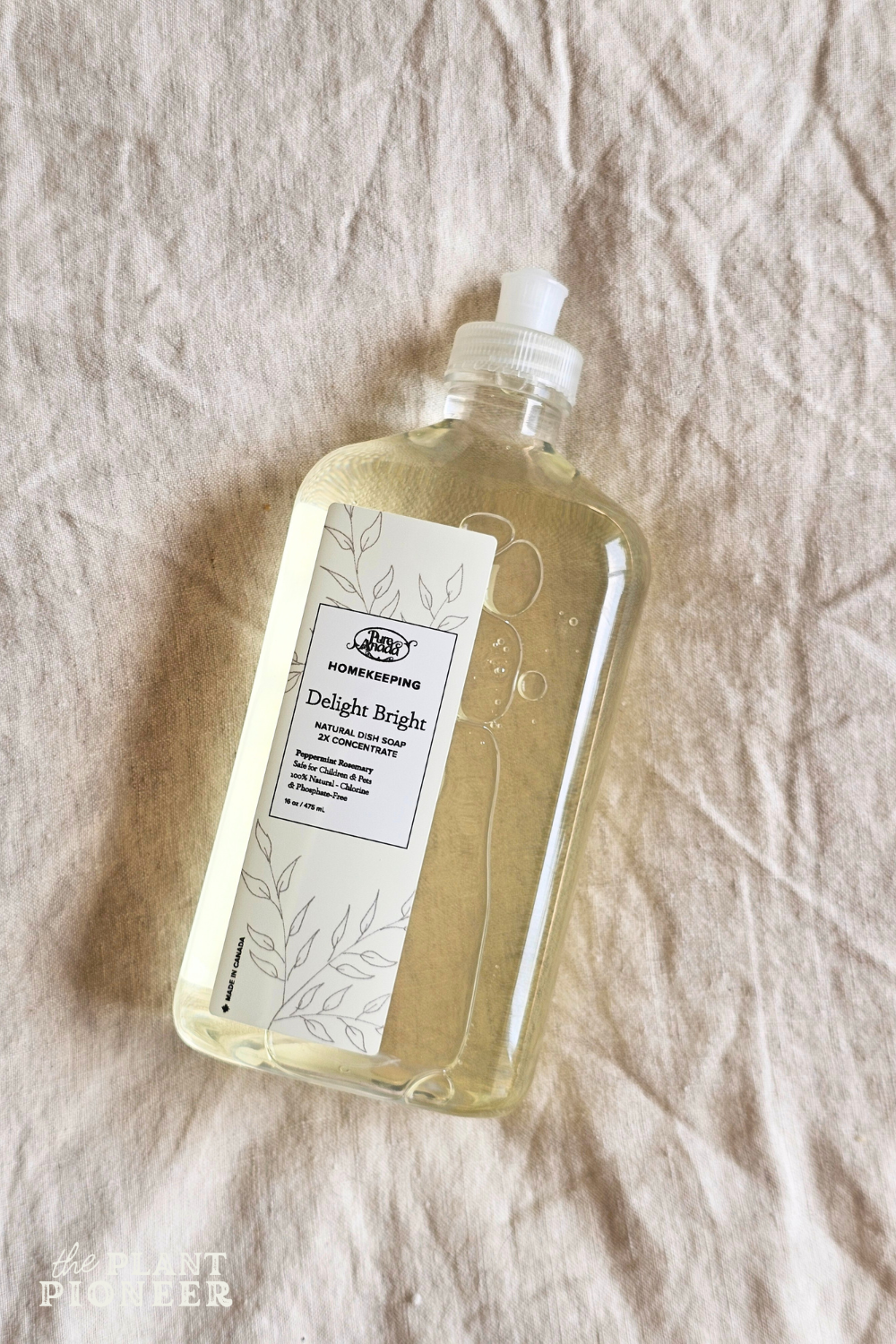
This is a great dish soap that has been my go-to for a while! It has amazing ingredients (none of concern) and the essential oils scents are amazing. It’s also easy to order online from their website for both those in Canada and the US.
$$$ The Most Expensive
Elva’s All Naturals
$22 for 500 mL
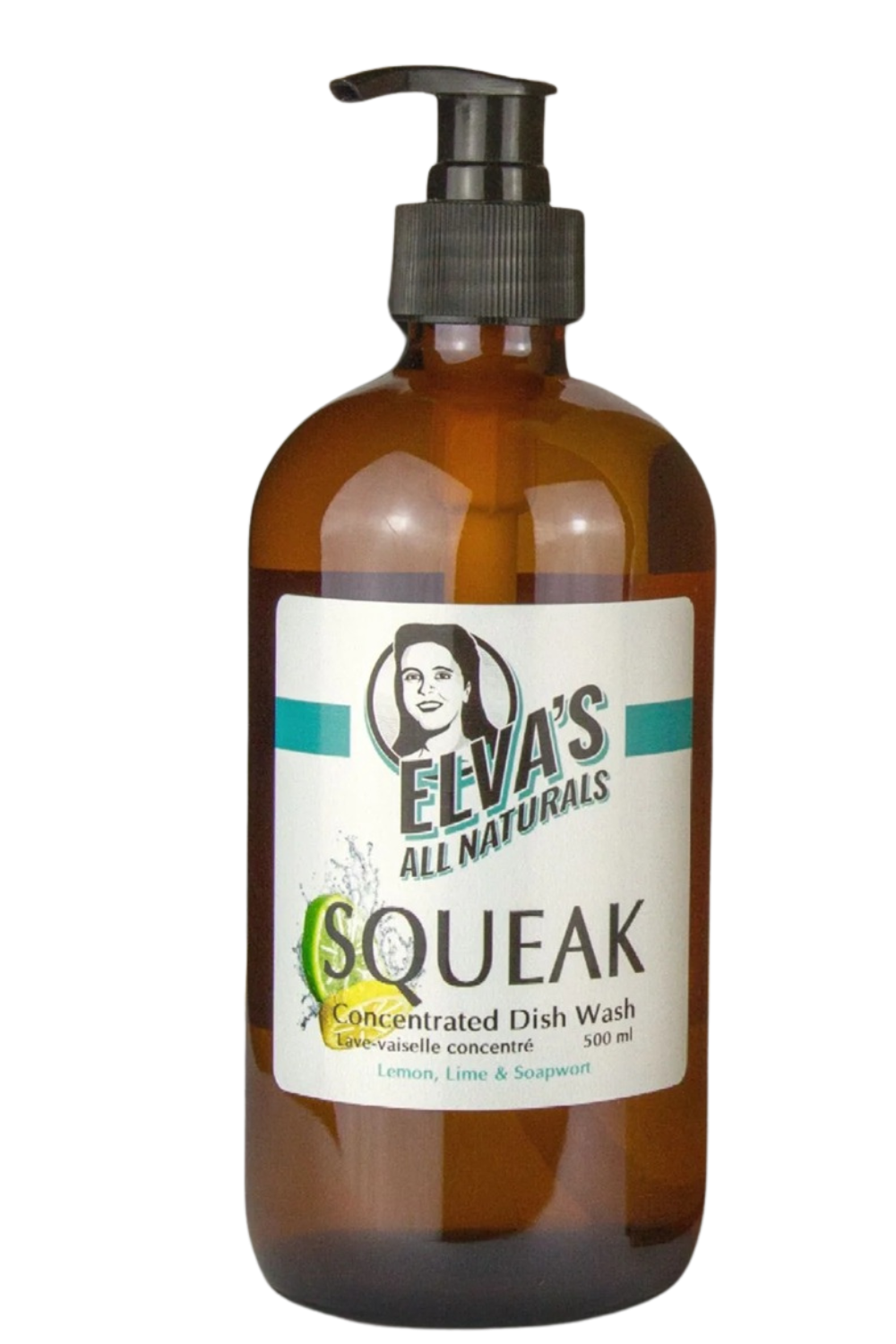
This is an extra-concentrated and 100% natural product. I’m truly impressed with the ingredients! It’s 100% biodegradable, and is recommended for using while camping because it is safe for natural, urban, and rural water systems.
While I’ve included it in the “most expensive” category, it is a highly-concentrated product and should last longer than you’d think! You are only supposed to use a few drops of it for handwashing in the sink. It is called “Squeak” because you can do the “squeak test” to see if your dishes are clean, rather than relying on bubbles, which are actually just cosmetic. You can also buy a refill box of this for more savings.
Jusu
$12 for 500 mL
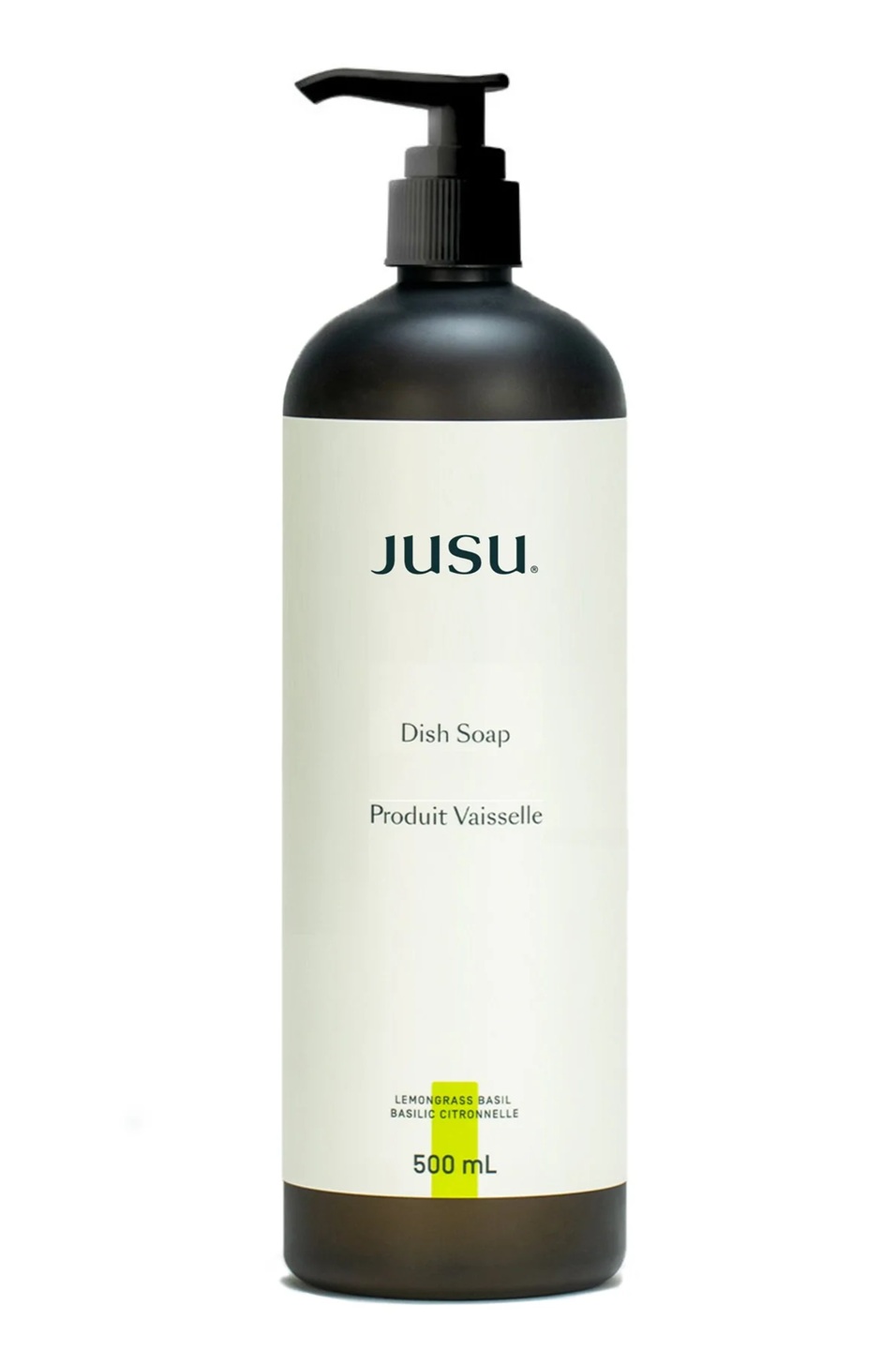
This is another company that reliably makes truly safe, natural products. Their lemongrass & basil dish soap sounds really good! This one had no ingredients of concern.
Rowe Casa Organics
$24 for 473 mL
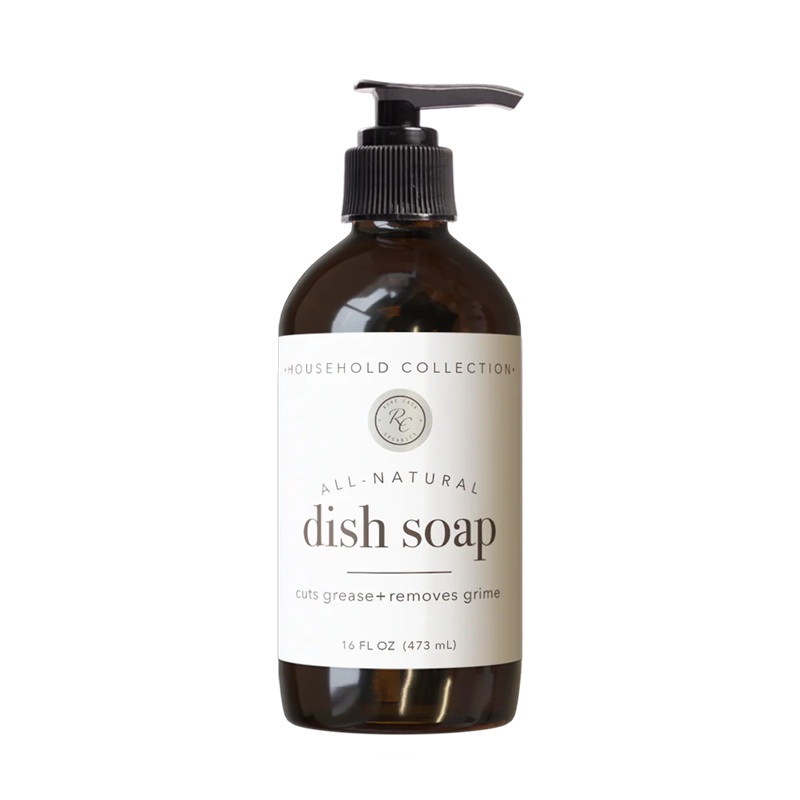
This company makes amazing products with truly natural ingredients! Their dish soap sounds really promising, although it’s very expensive and unfortunately, they haven’t provided full disclosure on the ingredient list. They’ve used some vague terminology like “glycols (derived from coconut & palm oil)” instead of stating the actual ingredient name. But since they have proved themselves as having high standards for safe, natural products, I included them on this list.
Brands to Avoid
Brands that you should avoid because they include too many toxic ingredients, or ingredients of high concern, include:
I hope this list is helpful! I’d love to hear from you in the comments if there’s another non-toxic dish soap that you love that I’ve missed! (There were a lot of brands I reviewed that were really in the middle in terms of ingredients- not as good as the ones on this list, but not as bad as the ones on the “avoid” list either.)
Don’t forget to pin this post to Pinterest!
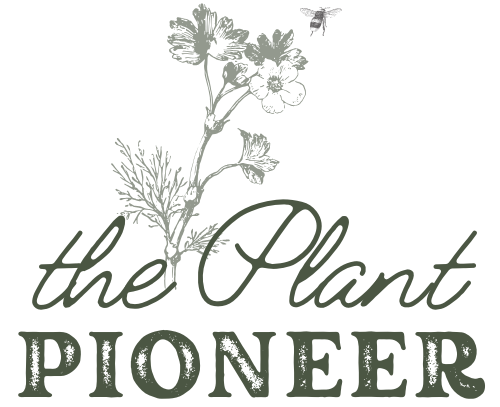
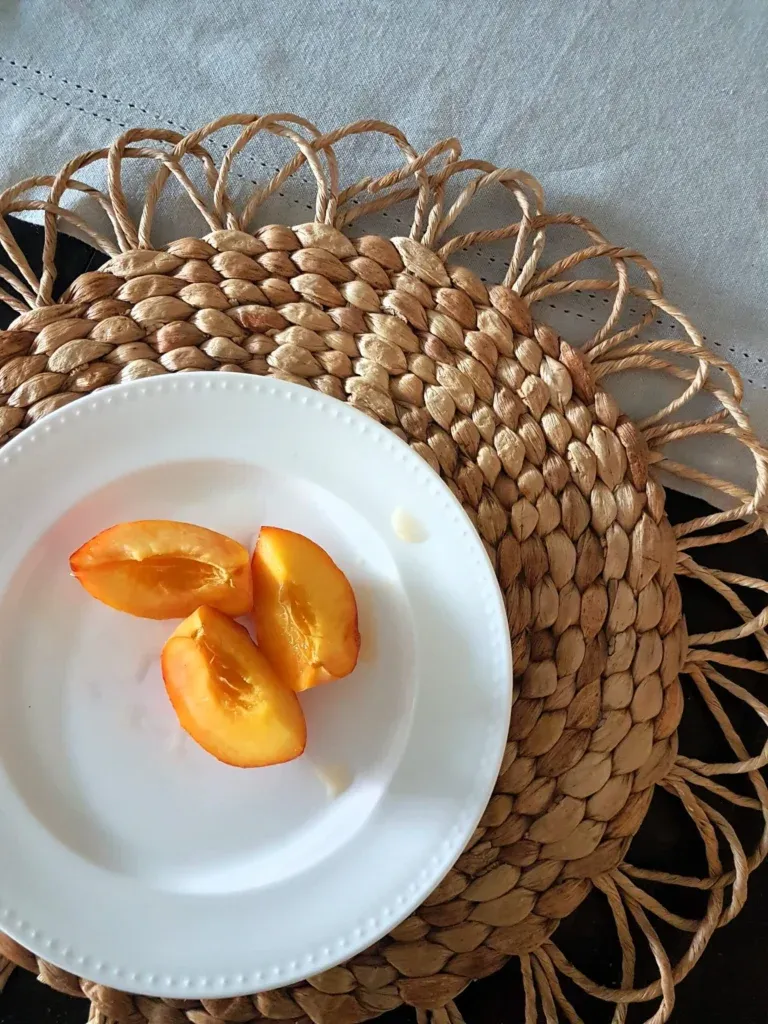
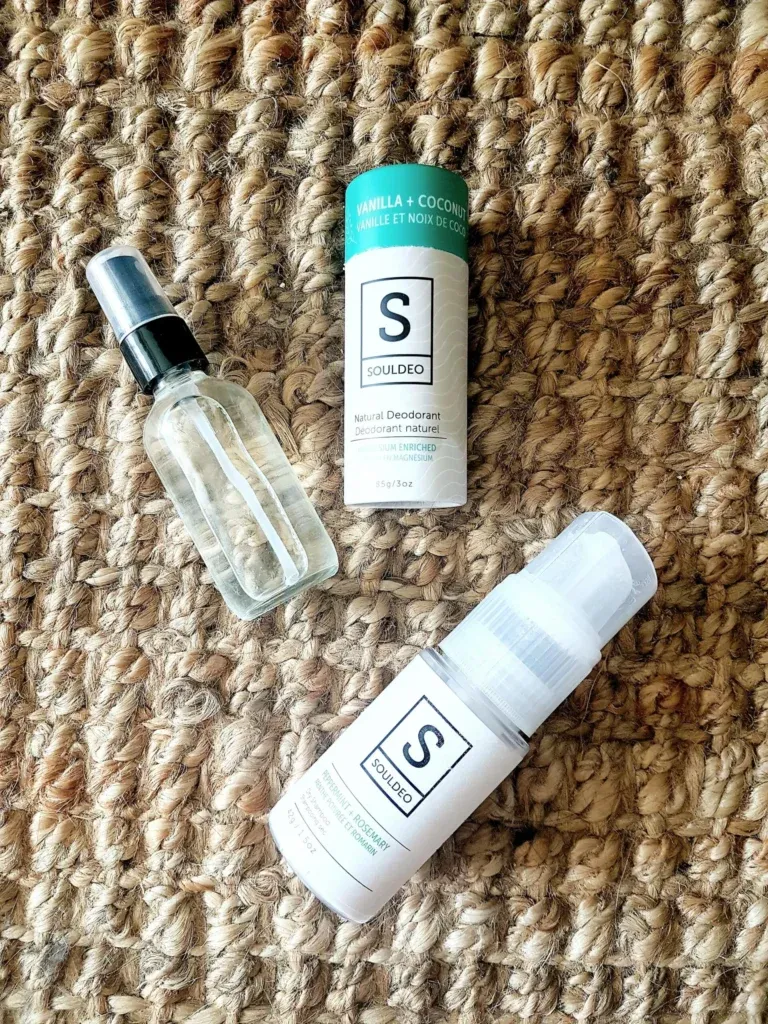
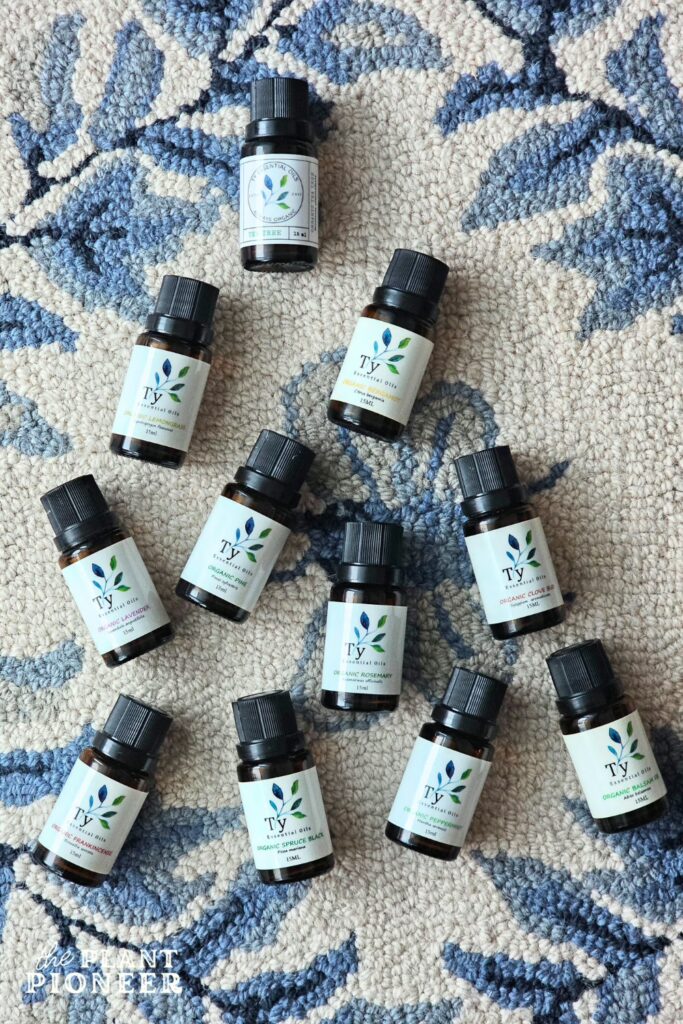
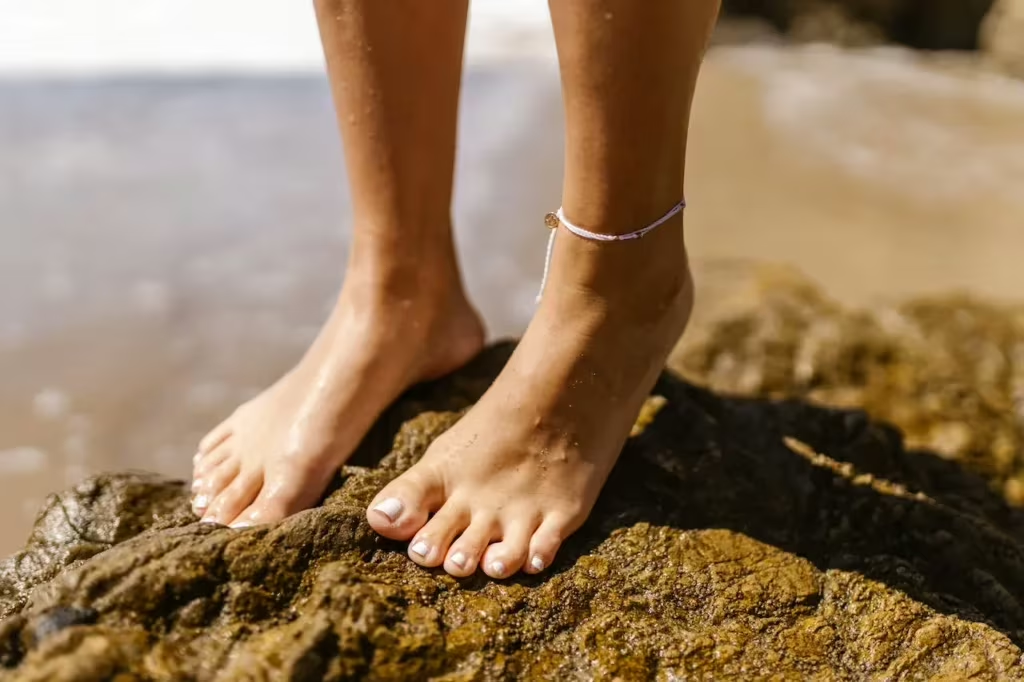
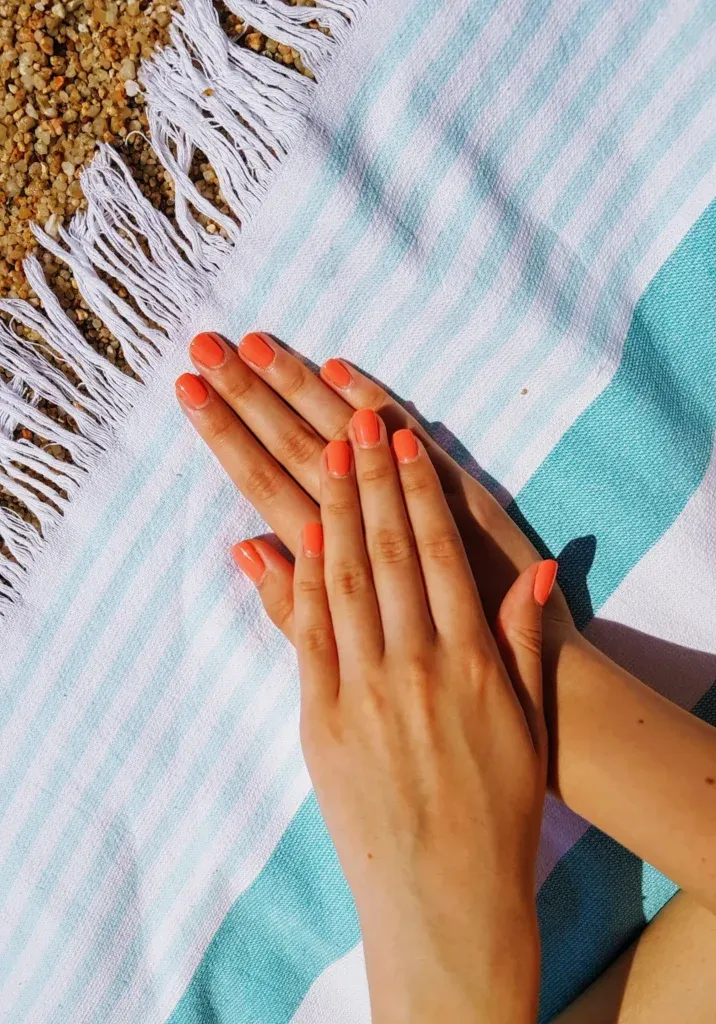
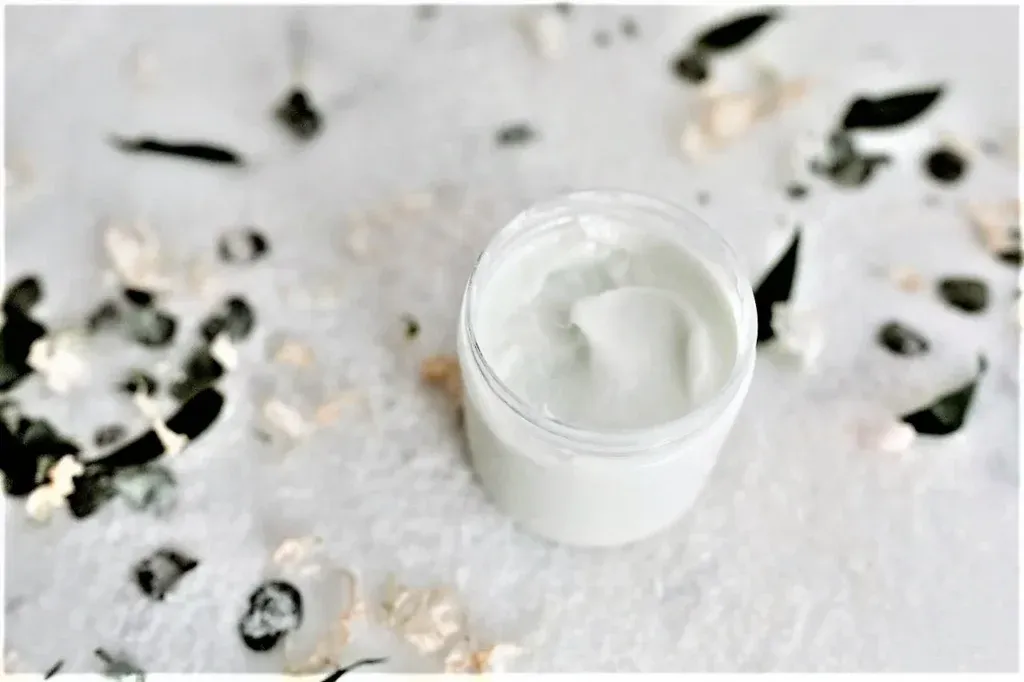
Join the List
Stay informed & receive my latest healthy living tips to your inbox.